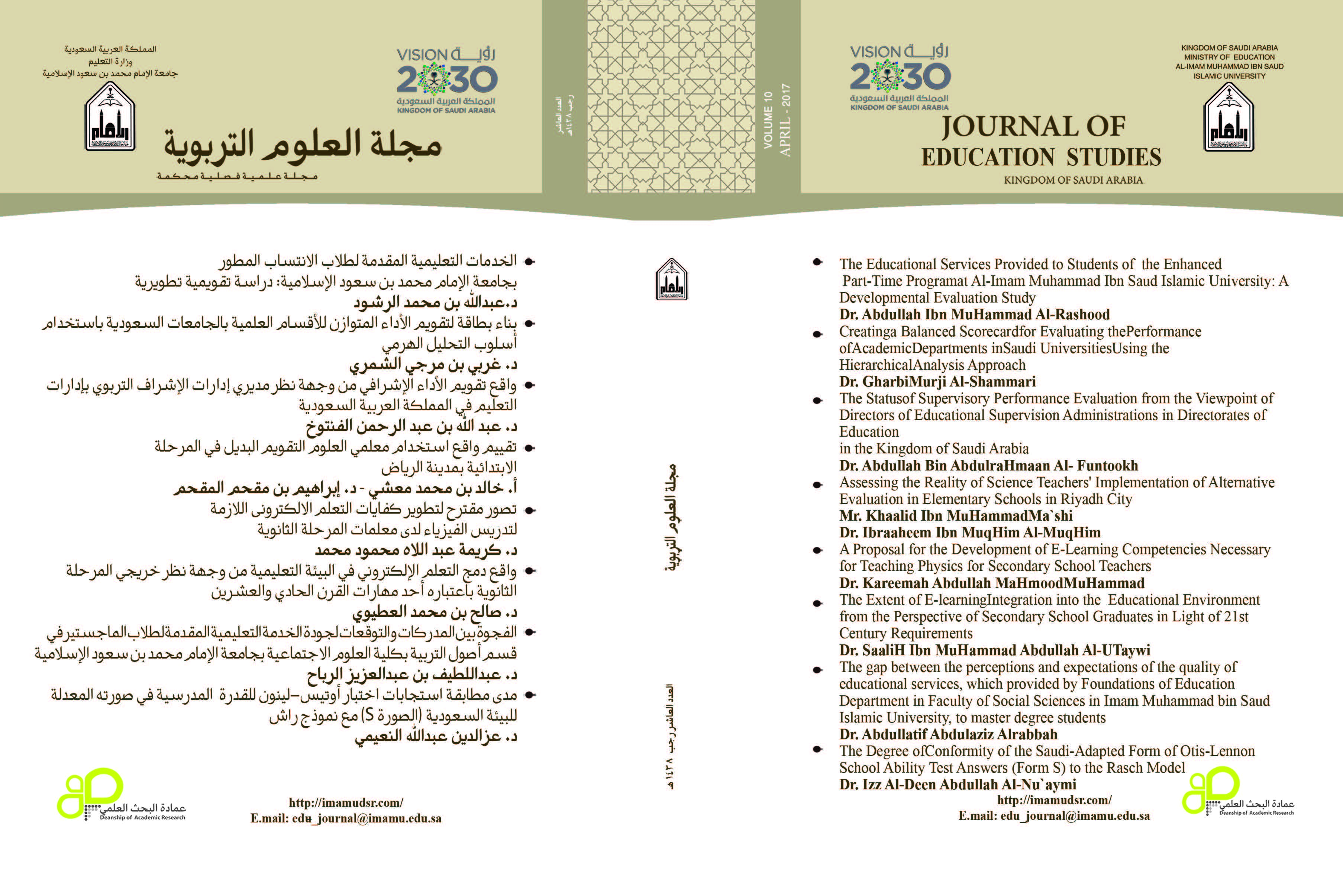واقع تقويم الأداء الإشرافي من وجهة نظر مديري إدارات الإشراف التربوي بإدارات التعليم في المملكة العربية السعودية
الملخص
سعت هذه الدراسة إلى التعرف على واقع تقويم الأداء الإشرافي، ومعوقاته، ومقترحات لتطوير تقويم هذا الأداء من وجهة نظر مديري الإشراف التربوي بإدارات التعليم في المملكة العربية السعودية، واستخدم الباحث المنهج الوصفي المسحي، والاستبانة أداةً للدراسة، وتكون مجتمع الدراسة من مديري إدارات الإشراف التربوي البالغ عددهم (45) مديرًا في الفصل الدراسي الأول من العام الجامعي 1434/1435هـ، وكان من أبرز نتائج هذه الدراسة ما يأتي:
- أن هناك موافقة بين أفراد الدراسة على تقويم الأداء الإشرافي، وأبرزها تمثلت في: جاهزية الإدارة لاستقبال الفريق من لحظه وصولهم إلى مغادرتهم، ووجود التنسيق المسبق مع الإدارة وقت الزيارة، وأن الفريق انتهج أسلوب التعامل المرن مع الإدارة.
- أن هناك موافقة بين أفراد الدراسة على معوقات تقويم الأداء الإشرافي، ومن أهم تلك المعوقات: عدم مشاركة الميدان في بناء الخطط الإشرافي لدى جهاز الوزارة، وعدم وجود بنود خاصة للتكلفة المالية للزيارة، وعدم وجود سجل تراكمي للفريق الزائر بحيث يكمل ما قبله.
- أن هناك موافقة بدرجة كبيرة بين أفراد الدراسة على مقترحات تقويم الأداء الإشرافي بإدارات التعليم، ومن أهم تلك المقترحات: تدريب فريق التقويم قبل القيام بالزيارة التقويمية، وتبنى أشخاص مميزين أثناء الزيارة ليتم الاستفادة منهم مستقبلاً، وتطوير أدوات التقويم ورسم آلية للمتابعة داخل كل إدارة، وعقد ورشة عمل تأسيسية بالوزارة قبل الزيارة.
وأوصت الدراسة بعدد من التوصيات التي من شأنها الإسهام- بإذن الله تعالى- في تحسين تقويم الأداء الإشرافي.




